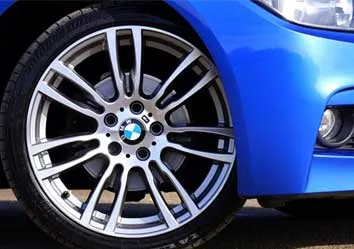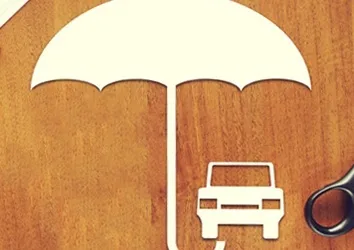LightStream Auto Loans
| Loan amount | $5,000 – $100,000 |
|---|---|
| APR | Competitive |
| Minimum credit score | Good to excellent credit |
| Loan amount | $5,000 – $100,000 |
|---|---|
| APR | Competitive |
| Minimum credit score | Good to excellent credit |
To narrow down our choices, we compared nearly 100 lenders based on the type of car loans offered, the average interest rates and the total amount you’re able to borrow. These seven options are available to a range of borrowers, even if you have bad credit. And most importantly, they all allow you to apply for preapproval before you start shopping for your next car.
LightStream Auto Loans
| Loan amount | $5,000 – $100,000 |
|---|---|
| APR | Competitive |
| Minimum credit score | Good to excellent credit |
| Loan amount | $5,000 – $100,000 |
|---|---|
| APR | Competitive |
| Minimum credit score | Good to excellent credit |
LendingTree
| Loan amount | Not stated |
|---|---|
| APR | Starting at 1% |
| Minimum credit score | Good to excellent credit |
| Loan amount | Not stated |
|---|---|
| APR | Starting at 1% |
| Minimum credit score | Good to excellent credit |

Ally Clearlane
| Loan amount | $7,500 – $99,999 |
|---|---|
| APR | 7.54% to 22.49% |
| Minimum credit score | 520 |
| Loan amount | $7,500 – $99,999 |
|---|---|
| APR | 7.54% to 22.49% |
| Minimum credit score | 520 |
PenFed Auto Loans
| Loan amount | $500 – $150,000 |
|---|---|
| APR | Starting at 5.19% |
| Minimum credit score | Varies |
| Loan amount | $500 – $150,000 |
|---|---|
| APR | Starting at 5.19% |
| Minimum credit score | Varies |
Bank of America Auto Loans
| Loan amount | $5,000 – $100,000 |
|---|---|
| APR | Starting at 5.39% |
| Minimum credit score | Varies |
| Loan amount | $5,000 – $100,000 |
|---|---|
| APR | Starting at 5.39% |
| Minimum credit score | Varies |

M&T Bank Auto Loan
| Loan amount | Starting from $2,000 |
|---|---|
| APR | 7.49% to 15.76% |
| Loan amount | Starting from $2,000 |
|---|---|
| APR | 7.49% to 15.76% |
Here are a few pointers to nab a good deal on your next car loan:
Car loans can come with rates as low as 2%, but the rate you qualify for depends on several factors, including:
Compare low interest car loan options and keep payments down.

Use your vehicle as security and benefit from lower rates.

Compare lenders that specifically assist people with poor credit.

Manufacturer financing can be a good option if you have excellent credit and a strong credit history. This is because many manufacturers offer special deals on new and certified preowned (CPO) cars. These can include cash back, 0% financing and other discounts — all of which can drastically lower your monthly repayment.
But these deals are difficult for most borrowers to qualify for. If you want to get the best rate, take the time to see what other lenders will offer. Then you can compare it to the manufacturer — or dealership — financing option to ensure you’re picking the right loan.
In general, yes. Lenders may be more willing to offer favorable terms if you have money saved up to use as a down payment. A larger down payment also means you have to borrow less, which reduces your monthly payment and how much you’ll pay in interest.
For instance, say you’re looking to borrow $15,000 for a new vehicle. The lender you’ve chosen to go with offered you a 60-month term with a 7.45% APR.
By calculating your monthly payments with different down payment amounts, you can see how much money you’ll save each month and overall:
| Down payment | Monthly payment | Interest paid |
|---|---|---|
| 0% ($0) | $300.21 | $3,012.78 |
| 10% ($1,500) | $270.19 | $2,711.50 |
| 20% ($3,000) | $240.17 | $2,410.22 |
In this example, by having $3,000 saved up, you end up spending about $600 less on your loan and reduce your monthly payments by $60.
A sizable down payment can make the best loan even better by potentially saving you hundreds of dollars in interest over the life of your loan.
While a 72-month or 84-month car loan can be convenient to lower your monthly payment, it typically isn’t the most financially sound choice. You’ll pay more in interest over the life of your loan — and you may actually receive a higher interest rate than you would on a shorter term.
Long-term car loans are expensive. Despite the low monthly payment, you’ll end up paying much more overall. For an average new car, that means an interest rate of 4.31% on a loan of $35,000. Here’s how it breaks down.
| Loan term | Total interest | Total cost |
|---|---|---|
| 24 months | $1,592.95 | $36,592.95 |
| 36 months | $2,374.23 | $37,374.23 |
| 48 months | $3,166.31 | $38,166.31 |
| 60 months | $3,969.17 | $38,969.17 |
| 72 months | $4,782.80 | $39,782.80 |
| 84 months | $5,607.17 | $40,607.17 |
While you may be able to find a special deal if you have excellent credit, long-term auto loans tend to have higher interest rates. You can calculate your monthly payment and total interest to see how much more a long-term loan will cost you.
Upside down, underwater and negative equity all mean the same thing: You owe more on your car than it’s worth. This is a high-risk, low-reward scenario. Even if you keep your car the full six or seven years of your loan term, its value will have significantly depreciated.
When you go to sell your car or trade it in at the dealership, you may not recoup your losses. And if you choose to sell before your loan term is finished, it will cost you more — wrapping your previous loan into a new car loan will lead to high debt.
Low monthly payments seem like a good future bet. But realistically, higher monthly payments and a shorter loan term save you money. Instead of paying an extra $4,000 in interest for a longer loan term, you could put that money into savings.
In the worst-case scenario, having a fully paid-off car will be more beneficial than a lower monthly payment.
Depreciation takes its toll on new and used cars. You’ll lose money as a car ages and its value decreases. On top of this, your warranty will expire a year or two before you finish making payments. This puts you on the hook for expensive repairs which could sink you further into the red.
If you’re thinking of getting a long-term car loan on a new car or late model year used car to reduce payments, keep this in mind. The money you lose to depreciation can quickly put you upside down on your loan.
In addition to depreciation, older cars have less resale value. Even if your car was originally worth $35,000, it won’t be by the end of six or seven years. You could potentially make up some of what you paid in interest, but you’d stand a better chance of breaking even with a shorter loan term.
The ideal loan term depends on your financial situation — but try to choose a loan with the highest monthly payment your budget can afford. A shorter loan term of four years or less means you won’t pay as much in interest. So while your monthly payments will be higher, you’ll save money in the long run.
The truth? There’s no single best car loan out there. Not everyone looking for a car loan is buying the same car, earns the same income or is in the same financial situation. It’s up to you to compare your car loan options and find the lender that best fits your needs.
Commonly asked questions about car loans.
Yes. Some lenders are able to work with borrowers who have a low income. However, the amount you’re approved for will vary depending on how much the lender thinks you have the ability to pay back.
It depends on how damaged your score is, but there are lenders that offer bad credit car loans.
Unless you have an impeccable credit history, most lenders require a down payment.
Sunshine Loans offers fast funding to borrowers with lower credit, but rates and fees run high.
Compare more reputable lenders with better rates than Sunshine Loans.
Discover only offers a bonus on its savings account, and it has a high deposit requirement. See how to get it here.
Compare cash advance apps that offer $300 advances and the requirements to qualify.
Learn how to get an $8,000 loan, compare lenders and find the best rates.
Compare lenders that offer $6,000 personal loans and the requirements needed to qualify.
Need a $3,500 loan? Compare options for good & bad credit, plus tips for approval.
The Finder and Tastytrade Retail Investor Sentiment Report polled 2,016 Americans about how they’re investing their money in 2024.
Compare cash advance providers that offer $250 advances and the requirements needed to qualify.
Consider startup business loans with easy approval, including equipment loans, invoice factoring, crowdfunding and merchant cash advances.